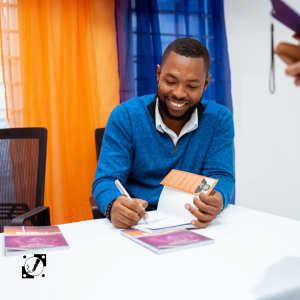The Philosophy of Rest: Why Doing Nothing is Productive
3 min read
The Philosophy of Rest: Why Doing Nothing is Productive
Today’s culture glorifies constant hustle and endless productivity, so the idea of doing nothing often feels counterintuitive—even indulgent. But what if true efficiency, creativity, and well-being hinge not on constant motion but on intentional rest? The philosophy of rest challenges the notion that idleness equates to laziness and instead positions it as an essential component of a balanced and fulfilling life.
The Psychology of Rest: Why Our Brains Need Downtime
Cognitive science reveals that rest is not just beneficial—it’s necessary. The human brain operates on cycles of focused work and diffuse thinking, meaning that periods of non-engagement allow for better problem-solving, creativity, and mental clarity. Studies on the default mode network (DMN)—the brain’s background processing system—show that when we daydream, reflect, or engage in passive activities, our brains continue working on complex problems in the background. This explains why breakthrough ideas often emerge in the shower or during a leisurely walk.
Neuroscientist Andrew Smart, in his book Autopilot: The Art and Science of Doing Nothing, argues that the overstimulation of modern life prevents us from accessing these deeper cognitive processes. By engaging in intentional rest, we allow our minds to make connections that might otherwise be lost in the noise of busyness.
The Philosophical Perspective: Rest as a Radical Act
The resistance to rest isn’t new. Ancient Greek philosophers like Aristotle and Seneca recognized the importance of leisure (scholē)—not as mere idleness but as a state of contemplation and intellectual flourishing. Aristotle believed that the highest human pursuits, such as philosophy and art, could only be fully realized in moments of leisure, free from the constraints of labor.
In more recent history, figures like Bertrand Russell, in his essay In Praise of Idleness, criticized the obsession with work, arguing that a society obsessed with constant labor fails to cultivate deeper intellectual and artistic growth. He suggested that leisure, rather than relentless work, leads to a more enlightened and fulfilled life.
Intentional Rest vs. Passive Idleness
Not all rest is created equal. There is a difference between intentional rest—such as mindful relaxation, meditation, or creative downtime—and passive idleness, which often manifests as mindless scrolling or binge-watching out of exhaustion. The former rejuvenates; the latter can leave us feeling depleted.
Here are some ways to practice intentional rest:
- Mindful Doing Nothing – Set aside 10–15 minutes to sit in silence, free from distractions, and let your thoughts wander.
- Nature Breaks – Spending time outdoors without an agenda can significantly lower stress and boost cognitive function.
- Reading for Reflection – Choose books that encourage deep thought rather than just consumption of information.
- Unstructured Creativity – Engage in art, writing, or music with no end goal—just for the sake of expression.
Rest as a Productivity Tool
Ironically, doing nothing can make us more productive. The most successful thinkers, from Einstein to Darwin, integrated deliberate downtime into their routines. Einstein often took long walks to allow his subconscious mind to process complex equations, while Darwin structured his work around breaks that included gardening and leisurely strolls.
Modern research backs this up. A study published in Nature Reviews Neuroscience highlights how frequent breaks enhance memory retention and problem-solving skills. Similarly, the concept of strategic procrastination, as proposed by Adam Grant, suggests that stepping away from a task allows for more innovative thinking upon return.
Reclaiming Rest in a Culture of Busyness
To embrace rest as a valuable practice, we must first unlearn the conditioning that equates busyness with worth. Rest isn’t a reward for productivity—it’s a fundamental human need. By intentionally incorporating restful moments into our Sundays (and beyond), we cultivate not just a healthier mind but a richer, more meaningful life.
So, the next time you feel guilty for doing nothing, remember: in rest, the mind recalibrates, creativity flourishes, and true productivity begins.









